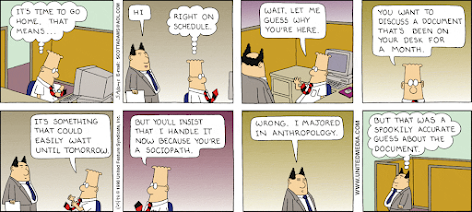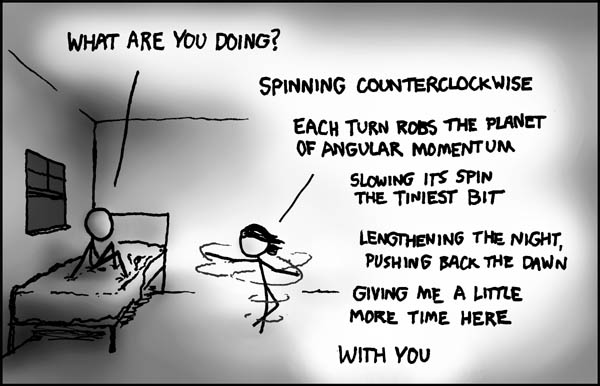Will XKCD replace Dilbert?
Humor and cartoon commentary in the workplace
March 2024
I try to avoid political content on this blog, but writing about Dilbert in light of Scott Adams' frankly wrong behavior in recent times makes it difficult.
Dilbert was a product of its' time: the end of the Reagan/Bush era, when corporate offices were replacing factories and shops as the de facto workplace for Americans, and when computers were very hard to use. Things like building applications and networking were left to people like Dilbert, Wally, and Alice: bright students who grew up to be adults with poor socialization and no work/life balance. And people like Dogbert and The Pointy Haired boss took advantage.
A favorite strip of all time, from January 25, 1998
That was, as of this write, three decades ago. A generation ago.
Times have changed, and we need a new comic strip to stick unironically on our cubicle walls just to annoy our pointy-headed supervisors.
And that strip is clearly XKCD.
Dilbert and Wally could have learned a thing or two about romance from this strip, too...
Mentioning cubicles doesn't really work as a simile here, though, because XKCD is for people who work at home. They skew young and liberal. Technology is second nature to them, and they would rather play video games than watch sitcoms. (Some XKCD panels are literally mini-games; couldn't do that with a newspaper strip!) Dilbert fans are the type to grumble about doing math in a restaurant; XKCD fans dabble in data visualization and 3D printing.
So what are the obstacles? Granted, XKCD tackles subjects that are opaque to the average citizen, and flaunted a little contempt for those who can't get the joke (per the snide shade cast at "liberal arts majors" in a front page comment that has been removed). With Dilbert, you didn't have to be a scientist to get jokes about code development because you could apply the scenario to any micromanagement conflict you've experienced. XKCD asks more of its' audience.
But XKCD is far friendlier to women, to persons of different protected groups, and to marginalized people of all kinds. Dilbert wore its' hate for humanity like a red hat; XKCD spreads love in its' autistic way.
And as I've pointed out before, business in The Boring 20s is about showing your audience that you care about them. Snark and cynicism is out, science and DEI are in.
In fact, if you are still running on Dilbert-isms, it's time to rethink them. Even Dilbert himself had a makeover, and it's time your way of doing business and making money got a thorough re-examination.
Sorry, Dilbert. You're fired!
And you, Black Hat Guy - welcome to the team! Don't screw it up.



Comments
Post a Comment